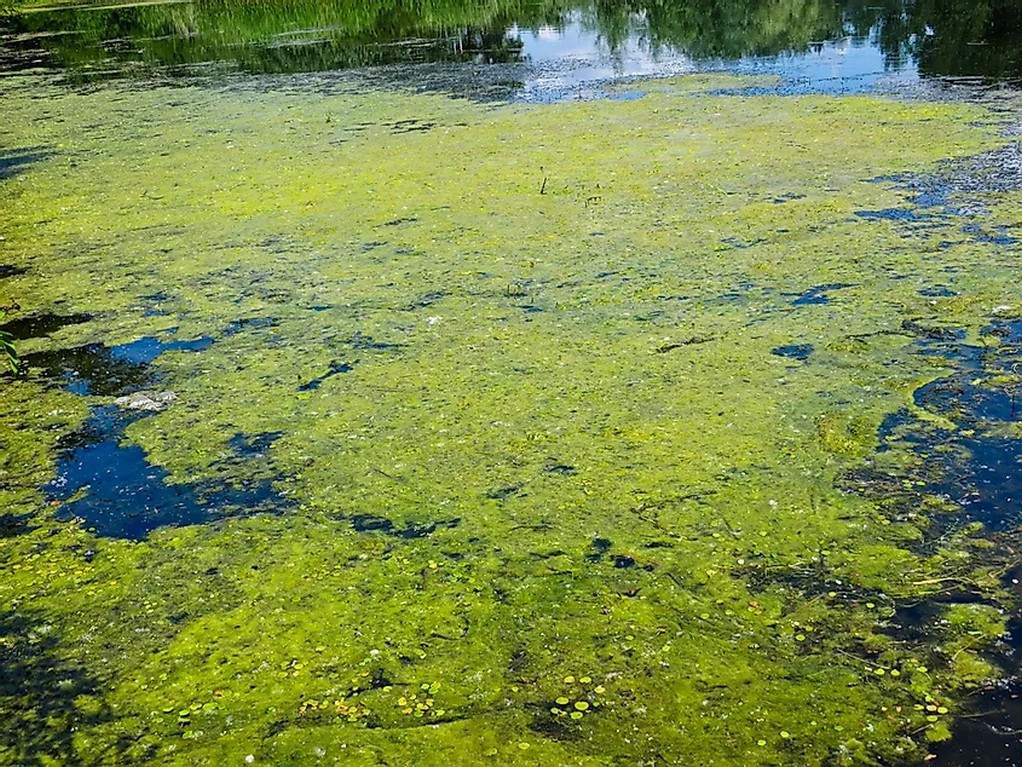Blue-green algae, also known as cyanobacteria, have been gaining attention in recent years for their potential as a sustainable biofuel source. As the global demand for renewable energy continues to rise, researchers and scientists are exploring alternative sources of biofuels that can help reduce greenhouse gas emissions and dependence on fossil fuels. Blue-green algae have emerged as a promising candidate due to their ability to produce high amounts of lipids, which can be converted into biodiesel.
One of the main advantages of blue-green algae as a biofuel source is their ability to grow in various environments, including freshwater, saltwater, and even wastewater. This versatility makes them an attractive option for biofuel production, as they can be cultivated in areas where traditional crops cannot thrive. Additionally, blue-green algae have a high growth rate and can double their biomass in just a few hours, making them a highly efficient source of biofuel.
Another key benefit of blue-green algae is their ability to capture carbon dioxide (CO2) during photosynthesis. As they grow, these microorganisms absorb CO2 from the atmosphere and convert it into biomass, effectively reducing greenhouse gas emissions. This makes blue-green algae a carbon-neutral biofuel source, as the CO2 released during combustion is offset by the CO2 captured during their growth.
Furthermore, blue-green algae have a higher lipid content compared to other biofuel feedstocks, such as corn or soybeans. Lipids are the main component of biodiesel, and the higher the lipid content, the more efficient the conversion process. This means that blue-green algae can produce a higher yield of biodiesel per unit of biomass, making them a more economically viable option for biofuel production.
In addition to their potential as a biofuel source, blue-green algae also offer other environmental benefits. For instance, they can be used to treat wastewater and remove pollutants, such as nitrogen and phosphorus, through a process called bioremediation. This not only helps improve water quality but also reduces the need for costly wastewater treatment methods.
Despite their numerous advantages, there are still challenges to overcome in the commercialization of blue-green algae as a biofuel source. One of the main obstacles is the high cost of cultivation and harvesting. The production of blue-green algae requires specific conditions, such as controlled temperature, light, and nutrient supply, which can be expensive to maintain on a large scale. Additionally, the harvesting process can be labor-intensive and energy-consuming, further adding to the overall cost.
However, ongoing research and technological advancements are addressing these challenges and making blue-green algae a more viable option for biofuel production. Scientists are exploring ways to optimize cultivation methods, improve lipid productivity, and develop cost-effective harvesting techniques. Additionally, the integration of blue-green algae cultivation with other industries, such as wastewater treatment plants or power plants, can help reduce costs and increase overall efficiency.
In conclusion, blue-green algae have the potential to play a significant role in the global biofuel market. Their ability to grow in various environments, capture CO2, and produce high amounts of lipids make them a sustainable and economically viable option for biofuel production. While there are still challenges to overcome, ongoing research and technological advancements are paving the way for the commercialization of blue-green algae as a renewable energy source. As the world continues to seek alternatives to fossil fuels, blue-green algae offer a promising solution that can help reduce greenhouse gas emissions and promote a more sustainable future.
Tags: Biofuel, Blue-green Algae, Cyanobacteria, Saltwater



Recent Posts
Hygenco Commissions Maharashtra’s First Green Hydrogen and Oxygen Facility to Power STL’s Net Zero Goals
India Invites Second Round of R&D Proposals Under ₹4 Billion Green Hydrogen Mission
BMTC Adds 148 Tata Electric Buses to Bengaluru Fleet, Strengthens Green Mobility Drive
MITSUI E&S Deploys Hydrogen Fuel-Cell RTG Crane at Yokohama’s Minami Honmoku Terminal
WinGD’s first ammonia-fuelled engine installed on EXMAR vessels
DP World and Asian Terminals Inc deploy first fleet of electric internal transfer vehicles in the Philippines
Lloyd’s Register Decarbonisation Hub Joins Mærsk Mc-Kinney Møller Center as Knowledge Partner
Wärtsilä engines selected to deliver reliable power for US data center